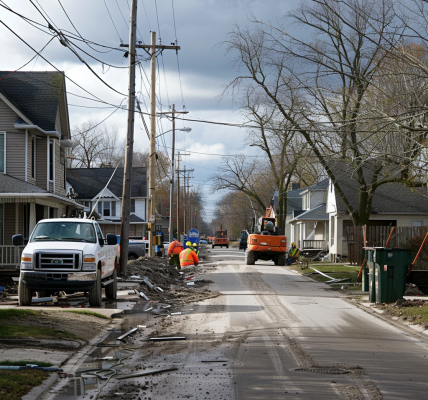Denver’s e-bike rebate program has hit a roadblock with the implementation of new rules that are causing confusion and concern among consumers and retailers.
The city of Denver has recently made changes to its e-bike rebate program, requiring all e-bikes purchased with vouchers to meet independent UL certification standards. This move aims to ensure the safety of the controls and lithium-ion batteries of the e-bikes. However, the new requirement has raised issues as not all e-bikes for sale at eligible retailers meet the new standards, leaving consumers in a dilemma.
Colorado is also expected to impose a similar mandate for its e-bike rebate recipients in the upcoming spring. The decision comes in the wake of incidents in New York where e-bikes were linked to numerous electrical fires and crashes, resulting in fatalities and injuries. This has prompted authorities to take proactive measures to prevent similar occurrences.
One of the major concerns arising from the new rule is the lack of clarity on which e-bike models qualify and the specific certification standards needed. This has led to conflicting information from city officials and Denver bike shops, leaving consumers unsure about the safety of their purchases. MacKenzie Hardt, the owner of Hardt Family Cyclery, emphasized the challenge faced by consumers, stating, ‘For consumers, it’s a horrible problem. They have to go into a shop and trust [the retailer] is not going to lie to them.’
Another point of contention is the city’s decision to allow the sale of e-bikes from manufacturers who are in the process of obtaining certification, even if their current models have not yet met the standard. This has created uncertainty, particularly for popular manufacturers like RadPower bikes, where the eligibility of older and new models under the rebate program is in question.
Furthermore, the city’s verification process only occurs after the sale, placing the responsibility on the shop and potentially the customers for the voucher’s amount, which ranges from $300 to $1,400. Denver made the rule change following pressure from bike shop owners, consumers, and fire officials, with the Denver Fire department revealing instances of fires caused by e-bike battery malfunctions.
While the move towards UL-certified e-bikes is aimed at enhancing safety, it has raised concerns about the potential increase in costs. However, bike shop owners argue that the safety of their families and homes outweighs any additional expenses. The situation highlights the challenges and complexities associated with ensuring the safety and regulation of e-bikes in urban environments.





